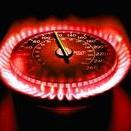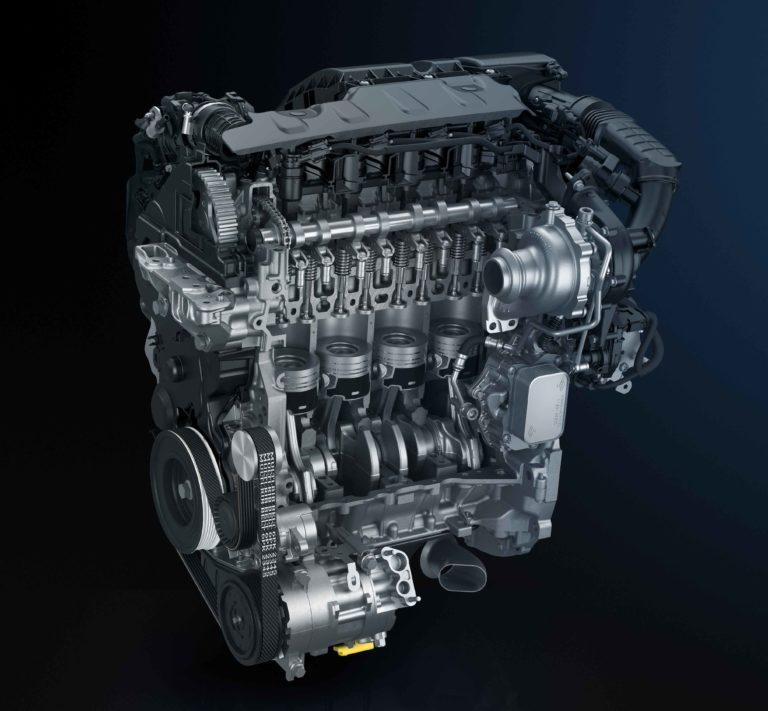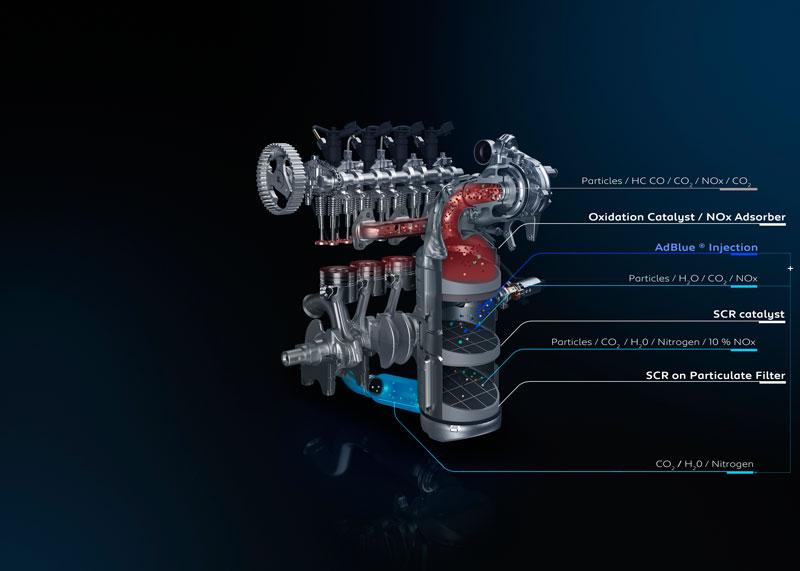Cerca nel Forum
Mostra i risultati del/dei TAG ''euro 7'' .
Trovato 3 risultati
-

Euro 7 verso una delibera finale
nella discussione ha aggiunto 4200blu in Notizie e Scelte Strategiche dal mondo dell'Auto
Tough Euro 7 pollution rules planned for adoption this month The new rules, repeatedly delayed, will govern emissions of harmful pollutants such as fine particulates, hydrocarbons and carbon monoxide. BRUSSELS — After repeated delays, the European Commission is expected to adopt the Euro 7 tailpipe pollution regulations this month. The regulations will further limit emissions of harmful pollutants such as fine particulates, hydrocarbons and carbon monoxide from gasoline and diesel cars and trucks, and would replace the existing Euro 6 regulations, in place since 2014. Euro 7 is likely to be the defining pollution parameters for the final generation of combustion engines in Europe, with the EU planning to allow only zero-emissions vehicles to be sold after 2035. The most recent postponement of adoption was from Oct. 12 to Oct. 26 "or sooner," the Commission said Tuesday. It had been planned for July 20, which itself was pushed back from April 5 — and from the fourth quarter of 2021 before that. After the European Commission adopts the rules, a "co-decision" process will decide the final form and implementation process. They are likely to come into force no earlier than 2025 — and potentially even a year or two later, sources said at a meeting in Brussels last month of the Association for Emissions Control by Catalyst. Complex rule-making process European Commission officials have acknowledged the continued delays in adopting Euro 7. They are due to a number of factors, they say: The complexity in creating rules for passenger cars, motorcycles and commercial trucks at the same time; the need to acknowledge all stakeholders’ priorities; and even the Fit for 55 rules requiring zero-emissions by 2035, which were not anticipated when the Euro 7 process started. For some automakers, these delays raise the question as to why the regulations are even needed, given that they will be expensive and time-consuming to engineer, test and implement. At the same time because European brands are rushing to electrify their lineups well ahead of the 2035 deadline. “We are not overly convinced of the benefits of Euro 7,” said Paul Greening, Emissions and Fuels director at the automakers’ group ACEA, at the Brussels event. Both CO2 targets and Euro 7 are drivers for zero emissions, he said. In a likely scenario, Euro 7 rules would apply to a single generation of models starting about 2026, but by 2035 only a tiny percentage of new cars would still be launched with gasoline or diesel powertrains. With many automakers already announcing plans to launch only zero emission vehicles by 2030, a large investment in Euro 7 “does not make sense,” Greening in response to a question at the Brussels event. “The reality of investing in Euro 7 for a short return, and in a very difficult business market at the moment, with many pressures on the industry, is becoming more complex," he said, Panagiota Dilara, the team leader for vehicle emissions at the EC, said that Euro 7 is about much more than just passenger-car emissions. It includes commercial trucks — which are unlikely to be all-electric by 2035 — as well as non-fuel emissions from vehicles such as brake dust and tire particles, she said. Health impact A larger point, advocates say, is that the benefits of reducing tailpipe pollutants will extend far into the future, with many internal combustion cars and trucks sold even in the mid-2030s likely to still be on the road in the 2040s. If they are significantly cleaner than vehicles that meet the current Euro 6 standards, that could mean thousands of lives saved. The European Environmental Agency says that more than 300,000 deaths in the EU in 2019 were attributable to air pollution. That point was made by Francois Wakenhut, the head of unit for Clean Air and Urban Policy at the EC. "We need to improve the overall performance of all sectors that bear responsibility for emissions levels, and certainly the road transport sector does bear part of that,” he said. “No more than its share, but that share needs to be addressed." (ANE) -

Euro 7 - Rivisti i limiti: saranno meno restrittivi
nella discussione ha aggiunto J-Gian in Elettrificazione e Tecnologie per l'Ambiente
Articolo completo: https://www.quattroruote.it/news/industria-finanza/2021/04/15/emissioni_da_bruxelles_proposte_meno_restrittive_per_l_euro_7_scongiurato_l_addio_all_endotermico_.html- 18 risposte
-

Stellantis - Nuovo motore diesel EURO 7
nella discussione ha aggiunto Pawel72 in Innovazione Meccanica
Qualcuno per caso ha detto che con l'euro 7 vedremo la scomparsa dei motori tradizionali...!? 🤣 Tra 14 o 15 mesi, quindi nella primavera del prossimo anno (2023) sarà pronto un nuovo propulsore a gasolio Euro 7 che potrà essere montato sia sulle auto, sia sui veicoli commerciali di tutti i marchi del gruppo Stellantis. La scelta di assemblarlo in Italia è cruciale per la fabbrica di Pratola Serra, nella quale verranno prodotte anche unità elettrificate e componentistica per vetture a batteria. Fra l'altro da oggi al 2035 verranno stanziati 30 miliardi di euro per lo sviluppo di una nuova gamma di veicoli elettrificati.. Tavares ha espresso apprezzamenti per lo stabilimento irpino, ringraziando la forza lavoro per "la competenza, l'efficienza, la partecipazione e la disponibilità alla flessibilità" dimostrate nell'ultimo periodo, anche nelle fasi più problematiche. Nell’ambito dei motori a gasolio, il fiore all’occhiello di ex PSA è il nuovo 1.5 BlueHDi, in grado di rispettare i limiti imposti dalla Euro6d-temp e di essere pronto per le ulteriori future riduzioni della CO2 previste per il 2030 insieme al contenimento del particolato e degli NOx. Questo motore è stato progettato al 100% con l’uso di elementi finiti e gode di 200 brevetti depositati, rivelandosi oltretutto più parsimonioso e pulito anche delle più recenti motorizzazioni benzina di pari potenza... Per conformarsi alle norme in vigore dal 2020 relative agli NOx di 1,5, il sistema di antinquinamento ha subito un’evoluzione. Infatti, ora, risulta piú compatto perché raggruppa in un unico insieme il catalizzatore, la SCR (Selective Catalytic Reduction) e la SCR sul FAP®. Inoltre il posizionamento molto vicino al motore permette un’entrata in azione più rapida del post-trattamento. Questo rende possibile un miglioramento dell’efficacia del trattamento degli NOx e una ottimizzazione del consumo di carburante.- 7 risposte
-
- stellantis tecnologia
- fca tecnologia
-
(e 3 altri in più)
Taggato come:



